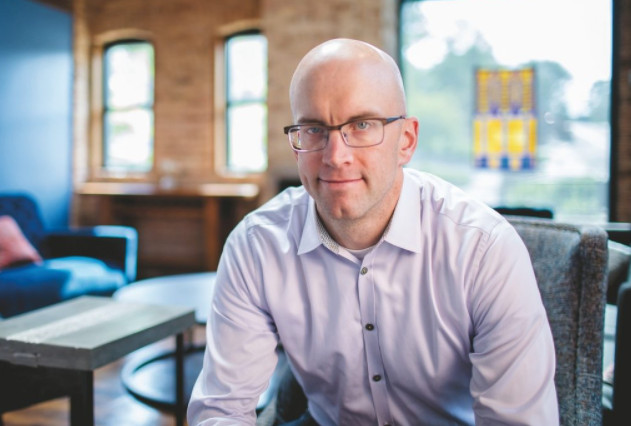Walking Your Factory Floor: A Letter to My Grandfather
Dear Grandpa,
Every year, I have a moment while walking through the company when the significance of our work hits me anew. Last week, Dennis retired after 46 years at the company. He kept his emotions in check until it was time to punch out for the last time. He simply could not do it.
So, Nadia did it for him.
And then they both wept.
I have pondered that moment all week. It reminds me that our work matters in ways that I often forget.
Though this year brought its usual share of challenges, stresses, and frustrations, watching Dennis struggle to punch out that final time put everything in perspective. His emotion showed me what Gretchen, Charlotte, and I are really stewarding here – not just a company, but a place that becomes woven into people’s lives, a place worth caring about this deeply. So, thank you for the business you founded. We mold much more than plastic parts here.
We mold lifelong relationships.
A Personal Check-In
In many ways, I have been on the verge of a mid-life crisis this year. Contemporary Western culture prioritizes its identity in self. While there are some good aspects to it, it has often tempted me to become too self-centered. The pursuit of a refined “me” has led me to feel like:
- A mediocre CEO — despite taking advantage of executive coaching and driving myself to exhaustion with books and podcasts.
- A stressed-out husband to Sarah and father to my three kids.
- A body showing its age, despite my stubborn belief that discipline and hard work would somehow make me the exception to time’s rules
In sum, chasing my identity in “self” has continued to produce a mostly stressed out, often joyless, and definitely aging man who does not do a good job of spreading the joy of Jesus to others.
What I am changing
I came to the above conclusion over Christmas break this year. It led me to confess that I was looking horizontally for my identity. I have been running myself ragged, trying to prove to the world I am worthy.
Despite what I said to others, my life wasn’t showing that I trusted Jesus about my identity. In short, I could speak Christian, but I was not acting like one.
Looking vertically, here is what I learned:
I am sufficient as a CEO as long as I am centered on God. I will read books and listen to podcasts when I want to. But I rest in God’s sovereignty and find my worth in Him.
Full stop.
The most important relationships I have on this planet are with Sarah and then the kids. These come after God but before everything else. They deserve a me that is fully available to them, not centered on self.
My body is aging. As my Marine buddy reminds me, the aches and pains indicate a life lived well to this point. I must accept this — and all the other things I cannot change through discipline and hard work. And the hope is in what will only come when I am given a resurrection body, one with no aches, pains, or imperfections!
The Real Marker of Success
When I find my identity vertically, I am then freed from the need to find validation in horizontal markers. As a Co-CEO, this does not mean I am off the hook for business results. The markers of a business are extremely important. I am proud that our sales and profits grew last year. But, my life and worth are not better because of this. And this reality allows me to work hard and then rest.
It is not up to me.
My identity is tied to the vertical, so I am on solid ground, no matter the weather. On solid ground, I can be there for people and do so from a place of joy. Sarah counsels me often that this is my most important work.
As always, she is right.
Gosh, I wish you had gotten to know her Grandpa.
To come full circle, I want to close by telling you about three significant retirements this year at your company. These people all worked with you:
Lizzie retired after 54 years
Mary retired after 48 years
Dennis retired after 46 years
All three said basically the same thing: This was their family away from their family, so all three reminded us never to lose sight of the power of relationships.
I imagine that if you had been here, you would have told us the same thing.
In fact, I can hear that whisper as I walk through the production floor.
That, and to get more presses running.
Roger that.
I miss and love you.
Alex
Walking Your Factory Floor: A Letter to My Grandfather Read More »








